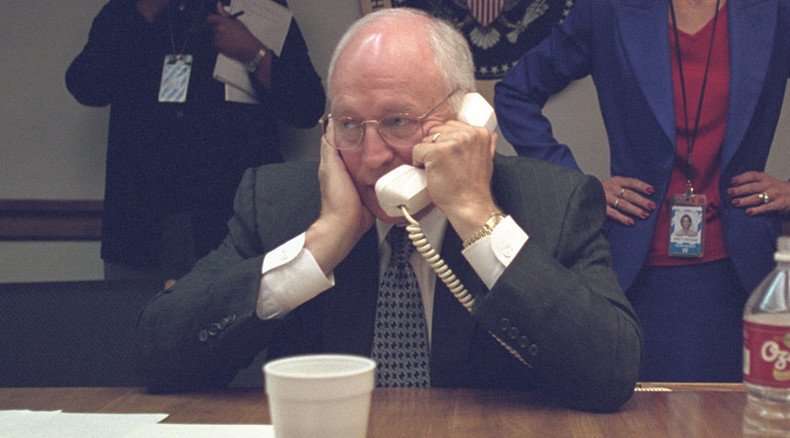Cheney blames Obama’s Iraq troop withdrawal for rise of ISIS

Former Vice President Dick Cheney is accusing President Barack Obama of being responsible for the rise of Islamic State in Iraq. He also denied that the Iraq War, which he supported, played a critical part in the origins of the terrorist group.
In an interview with CBS on Monday to promote his new book, Cheney said that Iraq was “in good shape” by the time he and former President George W. Bush had left office, but blamed Obama’s withdrawal of US troops for the rise of Islamic State (IS, formerly known as ISIS/ISIL) in the region.
READ MORE: Anti-torture activists protest on Dick Cheney's front porch, 2 arrested
“I think the spread of ISIS was the direct result of the vacuum that was created when the Obama administration withdrew all our forces from Iraq,” Cheney said. “We turned our backs on Iraq. We had Iraq in good shape by the time we left office. Even Obama said as much.”
President Bush originally agreed to a troop withdrawal timeline, although he only did so on account of wishes of the new Iraqi government. Bush signed a status of forces agreement with Iraq in 2008, promising that all US combat forces would be completely removed from their country by December 31, 2011. By the end of January 2015, there were 4,500 troops back in Iraq to serve in training and advisory roles to fight IS.
Many critics blame the Bush administration, of which Cheney was the second highest ranking member, for setting the conditions that led to the rise of IS by destabilizing Iraq with the 2003 invasion and subsequent regime change in the country, which led to widespread insurgency and sectarian violence.
READ MORE: Former US Attorney General brings legal challenge against Iraq War officials
Despite this, the former vice president still supports the decision to invade Iraq. When asked if he would change anything, Cheney said: “No. There was widespread support at the time, and it was justified.”
The Iraq war was largely justified by the belief that Iraq possessed weapons of mass destruction, a belief that later turned out to be false.
LISTEN MORE:
Cheney also used the opportunity to criticize Obama’s Iran deal, which he has encouraged lawmakers to reject when Congress meets next month.
The Obama administration has said that a better deal simply does not exist, but Cheney has supported more aggressive measures.
“You need to be prepared, for example, to make the threat of military action very credible,” he said.
READ MORE: Pentagon chief to Israel: Iran deal is good, military option still on the table












